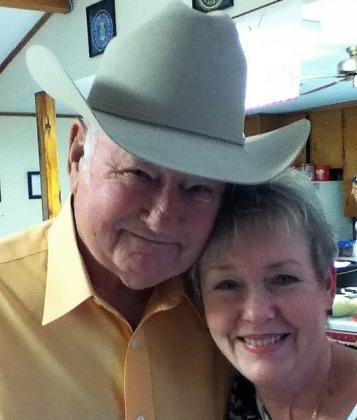They don’t make them like that anymore
Connie’s Corner
The Bedias community was hit hard recently by the loss of four of its seasoned citizens, Gerrie Eiring, Earl Druckhammer, Betty Darby and Raby Wallen. If these folks weren’t born in Bedias, they got there as quick as they could, and they participated in community life as their abilities and health allowed. But there is one more thing that ties these people together, and it’s that they were products of the Great Depression. That event molded their characters, their work ethic, their perspective on banks and money and fostered a belief in the adage, “Use it up, wear it out, make it do or do without.”
Of the four, I knew Raby the best, or as I loved to call him, “Marshall.” When Bedias incorporated and required a Marshall for the process, Ra-by stepped up and was proud of it! Even after the position was dissolved, he was still the “Marshall” to me.
Most of what I know about Raby came from his obituary and recollections of his children and grandchildren at his funeral service, but none of it surprises me. He was a man who shot from the hip when he spoke, and a daughter-in-law said he had the ability to insult you and compliment you at the same time, and you still loved him!
Political correctness notwithstanding, Raby was a big supporter of Sheriff Don Sowell’s “Grimes County is a hugging county” policy because he loved a hug, and I certainly treasured mine from him.
Born in the Texas Panhandle in 1931 during the Great Depression, Raby saw “the government” shoot his father’s cattle and pay him $2 per head to force them to leave their land. According to his obituary, his father cut off the rear end of his Buick and put a wooden bed on the back. His mother sewed a tent from their clothes and mother, father and 10 children hit the road to find work – and work was picking cotton and fruit all over Texas, Arkansas and Oklahoma.
Today’s children would do well to emulate Raby’s respect for his parents. He learned at age five “to obey his father and work hard with no complaining.” His hard work and transient young life formed his work ethic and his strength. He learned to work fast if he wanted to get paid and eat.
At the age of 20, Raby became a railroad man and worked his way up until retirement in 1986. It was noted that Raby was the only person to work for Southern Pacific and Union Pacific as a Division Engineer-Track without a high school or college degree.
Christine, his sweet wife of 69 years, said she never heard him say, “I can’t” or “I don’t want to.” Raby loved God, Christine, hunting, and teaching every family member he could “how to hunt, skin a deer and cut them up.”
I imagine that Gerrie, Earl and Betty faced similar challenges and in contrast to today’s impatience and focus on instant gratification, they learned the lessons of sacrifice and patience to get what they wanted. They had a tough row to hoe, but the times dictated the only way out was to put one foot in front of the other and keep moving forward.
This country is still made up of good, hard-working people but the challenges are different now. Could we have met those faced by Gerrie, Earl, Betty and Raby? I don’t know the answer, but I do know our lives are better for having known them, and all I can say is they just don’t make them like that anymore.
Connie Clements is a freelance reporter and award-winning columnist. She writes feature news articles on a weekly basis and an opinion column as the mood strikes her.


